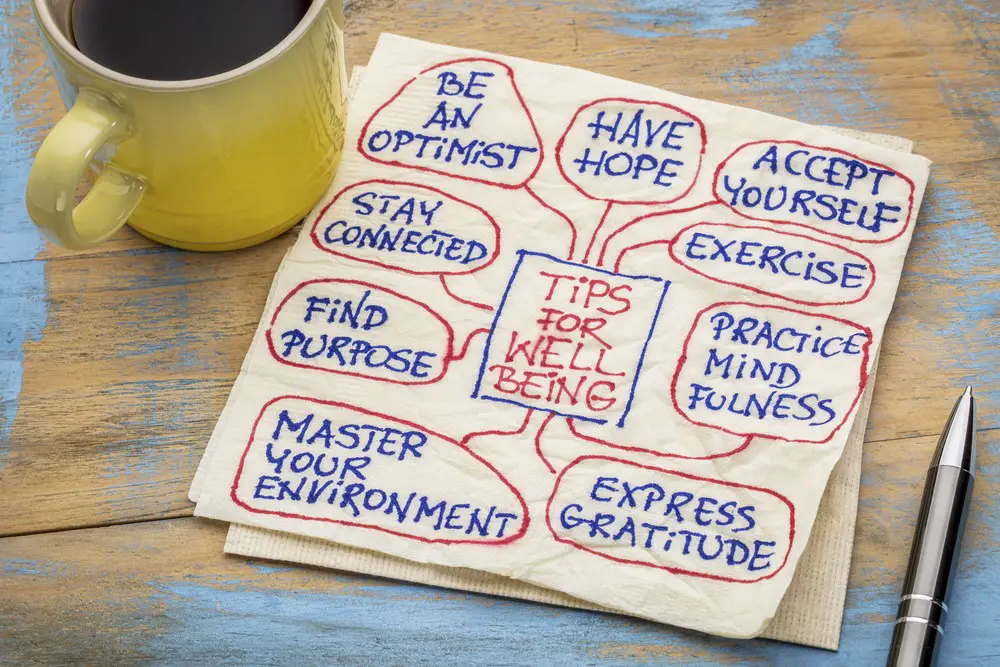As a BetterHelp affiliate, we receive compensation from BetterHelp if you purchase products or services through the links provided
Mindfulness is critical to your well-being and can help you overcome the stress and anxiety of a busy life. The basic principle of mindfulness is creating awareness of your surroundings and inner feelings. Fortunately, mindfulness is easy to incorporate into your daily life with simple exercises you can practice anywhere and at any time.
Here are 11 expert mindfulness tips that you can incorporate into your day to help you fight stress and anxiety:
1. Pay Some Attention to You in The Morning
Don’t jump out of bed as you start your day. Instead, take a few minutes to breathe consciously and explore how you feel emotionally and physically. Breathe deeply and consciously a few times, and stretch away any aches and pains. Then get up with a positive vibe and even a tiny smile.
If you prefer to instantly get active upon waking up, do the above as you take a brisk morning walk, taking time to recalibrate your thoughts and appreciate yourself and your surroundings.
2. Create a Goal
When starting your day, you need to create a mindfulness goal or intention to help you rid yourself of any anxiety. Then, you can either write it down in your journal or keep it in your mind, but make your day about meeting that goal. Remember, you can set intentions for several purposes during the day; for example, making that critical work presentation, caring for your body when eating or exercising, being more mindful when you walk, etc.
3. Put Your Thoughts on Paper
Whether scribbling down some thoughts or writing about the things you’re grateful for, journaling helps to fight stress and anxiety. Committing your thoughts to paper is one of the most incredible ways to tame and soothe your mind.
4. Practice Breathing Throughout the Day
Remember also to practice mindful breathing during the day. For example, you can set a phone reminder to take 10 conscious deep breaths or practice your preferred breathing method. In addition, you can help calm your heart rate and anxiety by letting an object remind you that it’s time to practice breathing, for example, every time you stop at a traffic light.
5. Don’t Stress if You Aren’t Relaxed
When practicing mindfulness, your aim is not to relax but to create attention to your thoughts. Therefore, your goal remains to show your mind how to focus on the present. Sometimes, this meditation also creates relaxation, but not always.
6. Observe – Never Judge
During mindfulness, many things will come into your mind. Whatever your thoughts, you need only to observe them. Therefore, never take a judgemental stance, and don’t try to control your thoughts or shape them.
7. Wish Happiness On Others
You can wish others happiness in an exercise that only needs to occur in your head. But, of course, the activity is quick since it only takes a few seconds. Still, according to its creator, Chade-Meng Tan, the former Google pioneer and author of several books, you will know you have found an excellent way to relieve anxiety when you can wish joy to someone who has upset you.
8. Focus on Doing One Chore at a Time
When you try to multitask, you create unnecessary stress and anxiety. So even if you have an endless to-do list, let it play a role in your mindfulness exercise by setting a timer for each task. Give yourself one task at a time without doing anything else, not even checking on a notification, and only stop when the timer goes off.
9. Use Your Tasks to Focus
Use your household chores as an opportunity to focus on your senses and have a good time. For example, focus on the patterns the water and soap make as you clean the shower, dance to your inner rhythm as you vacuum the house, and let your mind daydream as you fold and pack away the laundry.
10. Decrease Your Time on Social Media
Social media has proven to contribute to anxiety and interrupt productivity. If you’re frequently checking yours unconsciously, it’s time to log out for the day and only turn it on to catch up at a set time.
11. Evening Unwind
According to experts, your evening unwinding routine is just as important as your morning one. So start to unwind from the moment you get home by wearing comfortable clothes, reveling in your home’s quietness if you live alone, or spending some time with your family and pets.
Ways to practice mindfulness in the evening include taking ten minutes of quiet time before starting dinner, washing the cares of the day off with a cleansing shower, and practicing awareness breathing before falling asleep.
Final Thoughts
These expert tips show that some small mindfulness exercises practiced throughout the day help create the consistency that can help wean you off your stress and anxiety. Therefore, check in with yourself regularly throughout the day by practicing these enjoyable exercises and find your calmer self.
- 3 Ways Wearing a Hat Can Help Lower Your Stress Levels - April 19, 2025
- Breaking the Silence: Why Men’s Mental Health Matters More Than Ever - April 15, 2025
- How to Transform a Home’s Patio Space into a Relaxing Space - March 23, 2025
This site contains affiliate links to products. We will receive a commission for purchases made through these links.



